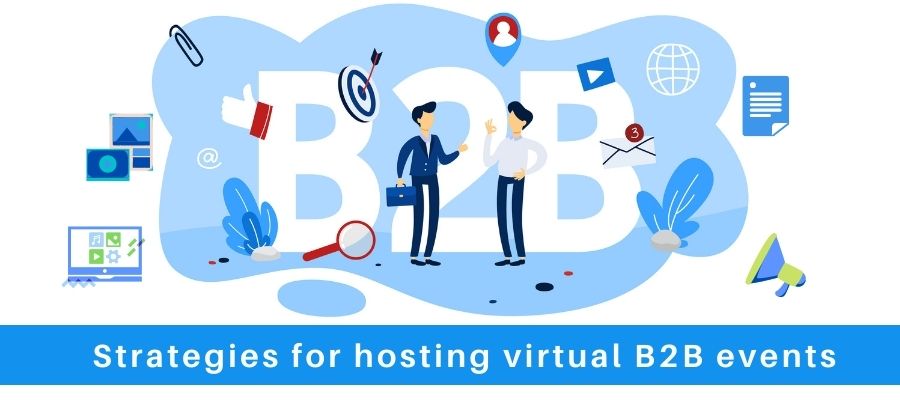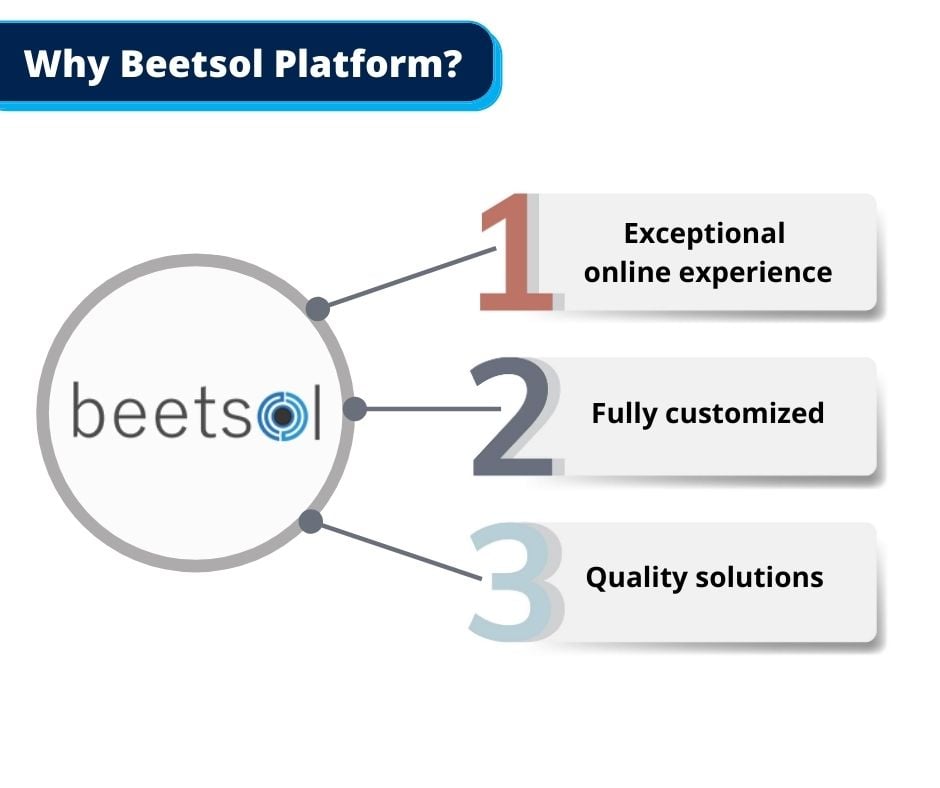4 strategies for hosting virtual B2B events
May 18, 2021

The key to successfully hosting and marketing virtual B2B events is having a solid plan in place. It should include creating buy-ins from the company’s stakeholders, preparing your content, choosing the right hosting platform, scheduling the event date, and much more. Hopping from one event to another without analyzing the performance is never the right strategy.
Building a clear roadmap for organizing an event and evaluating its performance during the follow-up stage is crucial. There is no better way to boost your sales through B2B virtual events than to follow some of the best practices that we have laid out for you in this blog post.
Let’s understand those strategies in detail:
1. Create your content before finalizing the event date

It’s not uncommon for organizers to delay the virtual B2B events because the content wasn’t prepared on time. Quite often, an event date is set first before the content is ready which is why organizers have to cut short the promotion period. As a result, they are unable to bring enough relevant demographic to attend the event.
If you are planning to host a B2B online virtual event then you should dedicate at least 3-4 weeks of promotions. Delayed content creation means you may have only a week or two to promote the event. Consequently, the number of registrations takes a hit, and one should absolutely avoid that.
The best strategy is to finish the content first and then set the event date. You can incorporate the following types of content in your strategy:
- Promotional emails
- Landing pages
- Sales kits
- Social media content
- Podcasts
This brings us to our next strategy.
2. Choose the right event hosting platform

This is a no-brainer. Choosing the right platform for hosting your virtual b2b meetings and events could be a game-changer. While web conferencing platforms such as Google Meet, Microsoft Teams, and Zoom are good enough to host 10’s or 1000’s of attendees, they aren’t much help with managing the various steps involved in conducting virtual events or conferences.
What you need is an event management solution like Beetsol where you can create various custom forms including registration, confirmation, and waiting pages, improve audience engagement, manage multiple events, and get extensive reports of your virtual B2B events.
3. Leverage digital marketing to drive registrations

In order to support your event, you should have a strong digital marketing strategy. In fact, in order to generate an exceptional sales pipeline you should promote the event across multiple channels.
Marketing tactics for an online event differ significantly from that of an in-person event. As virtual events are not restricted to a venue, their marketing is heavily dependent on social media platforms, Google ads, email campaigns, landing pages, targeted communication and similar other tools that expand the horizon of the audience reach.
For all types of virtual events, the focus should be on increasing the event awareness amongst your desired demographic and driving registrations. And if you want to get the most ROI from your virtual events, digital marketing is a must.
Beetsol considers every little detail of your event to give you a customised marketing strategy, helping you gain registrants from your desired demographic.
4. Provide a unique experience

Audience engagement is a key differentiator that sets you apart from your competitors. Throughout the event journey, your audience should feel engaged and excited about the event. There are plenty of engaging ideas that you can include in your B2B virtual events. Some of them include:
- Include poll and feedback questions at regular intervals
- Share anecdotes whenever possible
- Communicate using short sentences
- Include contests and quizzes
- Use images and story line in your slides
Online events are here to stay. And one needs to adapt to this change and make sure that their online events are a success on a regular basis. The above mentioned strategies will not only prove to be effective in hosting and marketing your next virtual event but also help build a consistent user base and a stream of return attendees.
Feel free to reach out to us if you need any help with any of the steps mentioned above.


 (7 votes)
(7 votes)